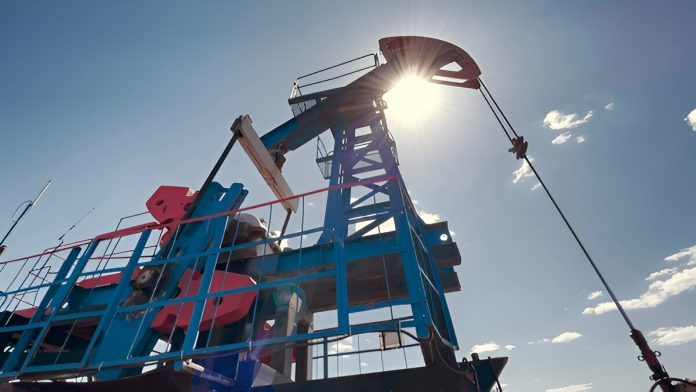It feels like the world has been buzzing a lot lately about oil. If you’ve ever filled up your car and noticed the price at the pump, you might be wondering what’s going on behind the scenes. In a surprising turn of events, OPEC+, a powerful group of oil-producing countries, has decided to increase oil production starting this October. But why now? And what does it mean for all of us?
Let’s dive into this topic together!
What is OPEC+?
First things first, let’s break down what OPEC+ is all about. OPEC, short for the Organization of the Petroleum Exporting Countries, is a group of oil-rich countries that manage how much oil they produce. They work together to make sure oil prices don’t swing too wildly. OPEC+ includes OPEC countries plus a few other major oil producers, like Russia. This group holds a significant influence over the global oil market, acting like a referee in the world of oil supply and demand.
In other words, when OPEC+ takes a decision, it’s not just a blip on the radar; it can change the game for economies around the world.
The Boost in Oil Production
Recently, OPEC+ confirmed they will be ramping up oil output. You might be wondering, “Why would they want to increase production now?” The answer lies in their goal to regain market share. Let’s think of it like a sports game. If one team has lost ground, they’re going to want to come back strong, right? OPEC+ is trying to reclaim its position in a competitive market where other oil-producing countries are also vying for attention.
With oil prices subject to constant change, it’s a tricky balancing act. On one side, raising production could mean lower prices for consumers, but on the other, it could also lead to oversupply or a decrease in revenue for the oil-producing nations. So, where’s the sweet spot? That’s the question experts have been grappling with.
The Saudi Focus on Revenue
One of the standout players in this decision is Saudi Arabia. The kingdom has been eyeing more revenue as its economic plans shift in light of changing times. The ambition is clear: the country is determined to bolster its economy. And guess what? Increased oil production may just be the ticket!
Imagine if your side hustle suddenly took off, giving you the chance to invest in your future – that’s what Saudi Arabia is aiming for here. They want to ensure they don’t miss out while there’s still a high demand for oil in the global market.
What’s at Stake?
The meeting where this decision was made took place recently, underscoring the importance of this moment. Why should you care? Well, as global citizens, we all feel the ramifications of these choices, whether it’s through gas prices soaring higher or the economy feeling the impact.
A lot is at stake: there’s the potential for an oil surplus which can lead to declining prices, but there’s also the significant risk of geopolitical tensions if countries become too reliant on oil or if the market crashes due to oversupply. It makes you think, doesn’t it?
The Greater Context
Let’s step back for a moment and look at the broader picture. In 2023, we’re witnessing shifts in energy consumption patterns, driven by climate change concerns and a move towards renewable energy sources. While oil used to be king, many nations are investing heavily in alternatives. So, OPEC+’s big move not only affects current markets but also the future of energy.
This strategic increase is a double-edged sword. While they can potentially stabilize prices in the short term, they’re also walking a fine line as the world continues its shift towards greener solutions. If OPEC+ pushes its oil too hard now, will it come back to bite them later?
The Global Reaction
How has the world reacted to this news? Opinions are divided. Some analysts argue that this decision could help stabilize prices during a turbulent time. Others warn it could lead to overproduction and economic fallout if the market can’t absorb the increased supply.
For instance, energy markets often react strongly to such announcements. It’s like a chain reaction where certain countries will start adjusting their own production in response, leading to a ripple effect.
Personal Connections
On a personal note, I find it fascinating how something as seemingly distant as an OPEC+ meeting can affect so many aspects of our daily lives. If you’re like me, you’ve probably grumbled about rising gas prices. It’s intriguing to think about how powerful organizations can influence what we pay at the pump.
I remember a summer road trip when gas prices spiked unexpectedly. We had to choose between cutting back on our itinerary or stretching our budget. It’s moments like that where you see firsthand how intertwined our everyday choices are with global events.
Conclusion: Why This Matters
So, what’s the takeaway from all this? OPEC+’s choice to increase oil output isn’t just about oil; it’s about the interconnected web of our global economy. As they take steps to reclaim market share, we need to be aware of the shifts in energy trends and how they might impact us as consumers.
The world is changing—fast! We are in a time where the focus is gradually moving toward sustainable energy, even if oil still plays a dominant role today. Each step OPEC+ takes could create waves in our economy and our lives. Understanding this is crucial for all of us as we navigate our budgets, our energy choices, and even the planet’s future.
Let’s keep our eyes peeled for what comes next. It might just shape the world we live in today—and years to come. What do you think? How does this shake up your understanding of energy and economics?
In the end, staying informed not only helps us adapt but also equips us to make decisions that benefit us and our planet.

